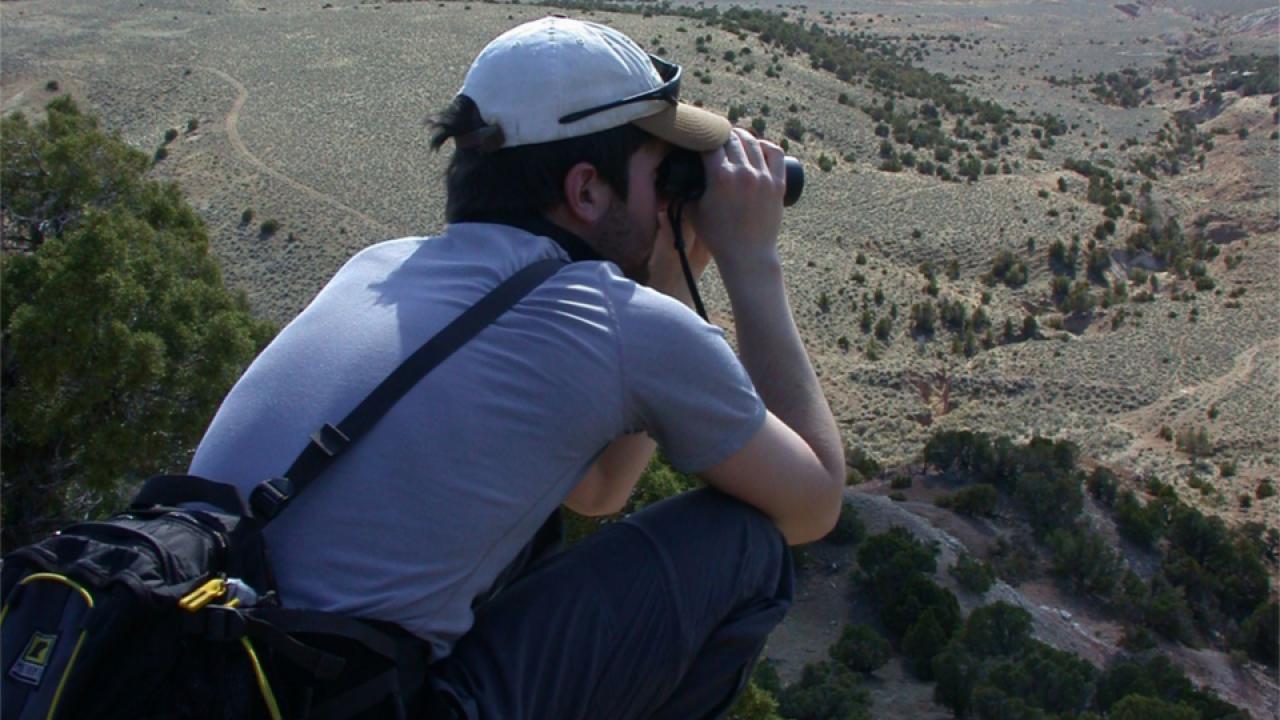
Conor Taff
What matters to Conor?
Quick Summary
- Inspiring college students to enjoy research through hands-on experience.
Conor Taff's fascination with sexual selection and the evolution of mating signals of wild birds began while an undergraduate at Skidmore College. Since then, he has returned to upstate New York as a doctorate candidate to conduct fieldwork three months out of the year. For the other nine months, he can be found in the lab of Gail Patricelli on the UC Davis campus.
A doctoral candidate in the Animal Behavior Graduate Group, Taff collaborates with other graduate groups at Davis, as well as with programs from other institutions, including Skidmore College, Bucknell University, University of Wisconsin at Milwaukee, and Arcadia University. "Getting different perspectives on your own work can be really illuminating," shared Taff. "In a few cases, this type of interaction has suggested a new line of inquiry for my own work and changed the direction of my project."
Taff got his own perspective of UC Davis before he even applied to graduate school. He served as Associate Professor Patricelli's field assistant, not knowing that later she would become his doctorate advisor. "I got a great sense for what the lab and environment would be like here," Taff said. "Not to mention that UC Davis is perennially ranked among the top five schools in the United States for evolution and ecology."
Taff's research focuses on the purpose and effectiveness of mating signals, as well as their relationship with sexual selection. According to Taff, the colorful, eccentric mating signals of wild birds (especially in his sample of Common Yellowthroat Warblers) seem unnecessary at first glance, and risky in regards to an efficient adaptation to their environment. "Despite these risks, sexual signals persist in many species across a wide range of taxonomic groups," said Taff. "The goal is to describe general patterns and principles that might contribute to the patterns of diversity in signaling across many species."
Various funding awards have allowed Taff to focus intently on research throughout his years at UC Davis. He has been the recipient of a UC Davis Graduate Research Fellowship as well as a National Science Foundation Graduate Research Fellowship. "Both of these were incredibly beneficial because they have given me the flexibility to pursue my fieldwork and collaborations outside of Davis without having to be tied to campus,” said Taff. "I have no doubt that without these fellowships I wouldn't have been nearly as productive in my own research."
In the near future, Taff hopes to find a faculty job in which he can run his own research program. "UC Davis has given me both the exposure to experts in a variety of fields and the time to absorb what I need to know to be confident that I can put together a successful research program." One of his main reasons for pursuing his goal of a faculty position is to inspire undergraduate and graduate students to enjoy research as much as he does. "When I engaged in data collection in class as an undergraduate, it made my work much more interesting. I hope that I can provide that same experience to my own students."
To get a more in-depth look at Taff's research, visit his website.
Photo: Taff holds the Greater-Sage Grouse. Credits: Conor Taff and Gail Patricelli.
